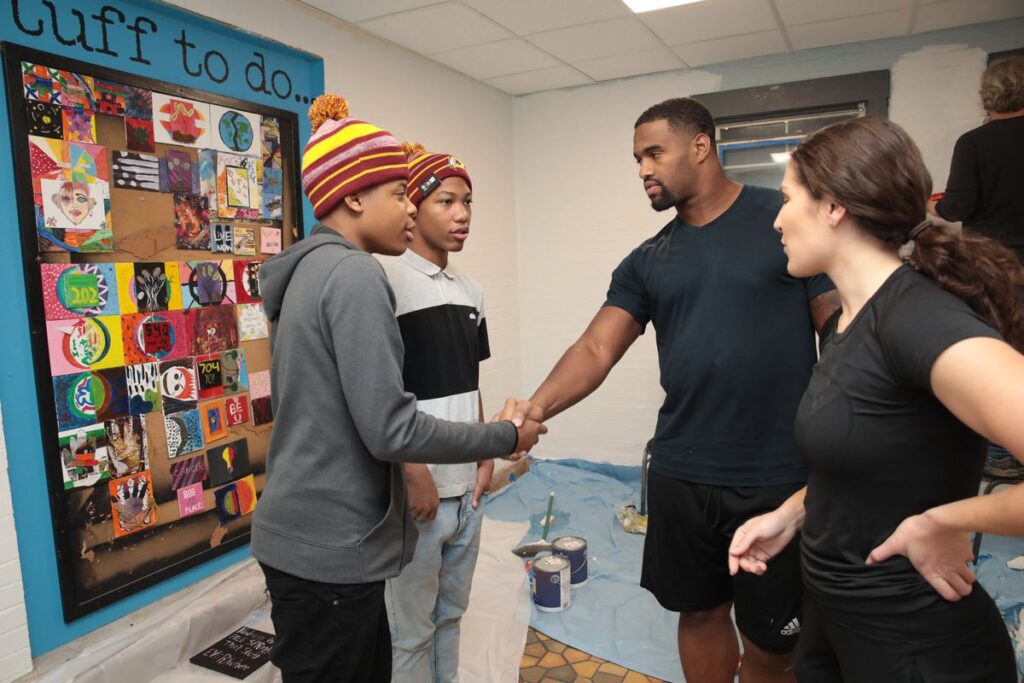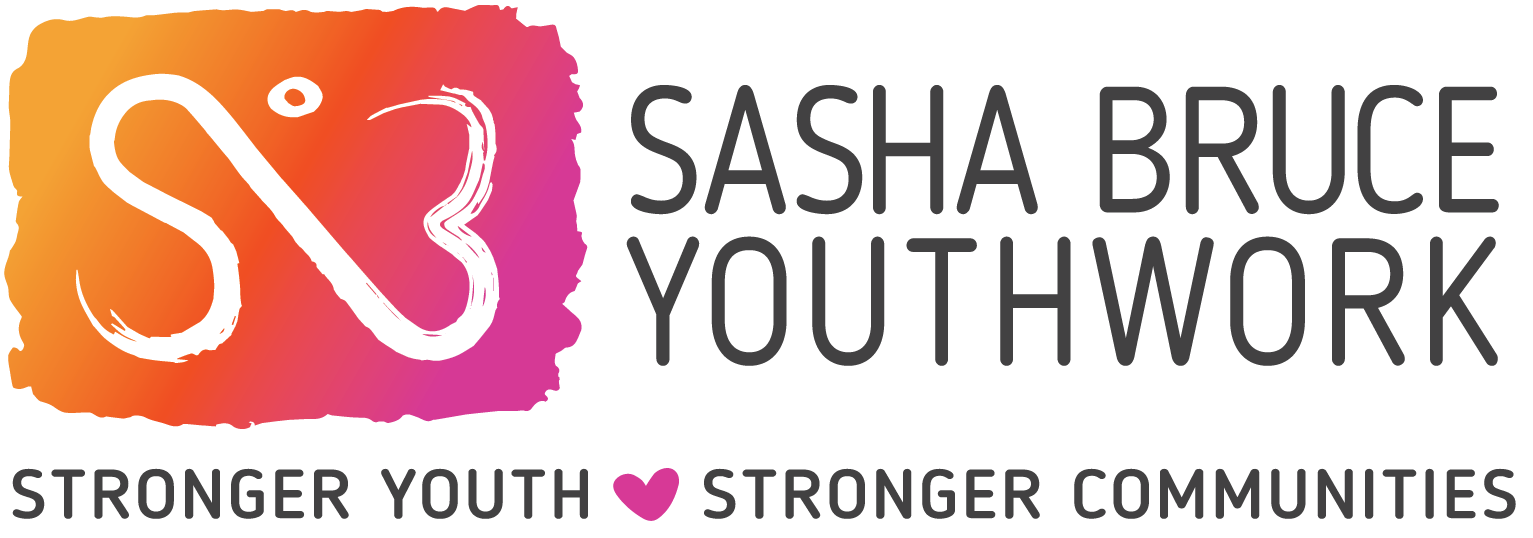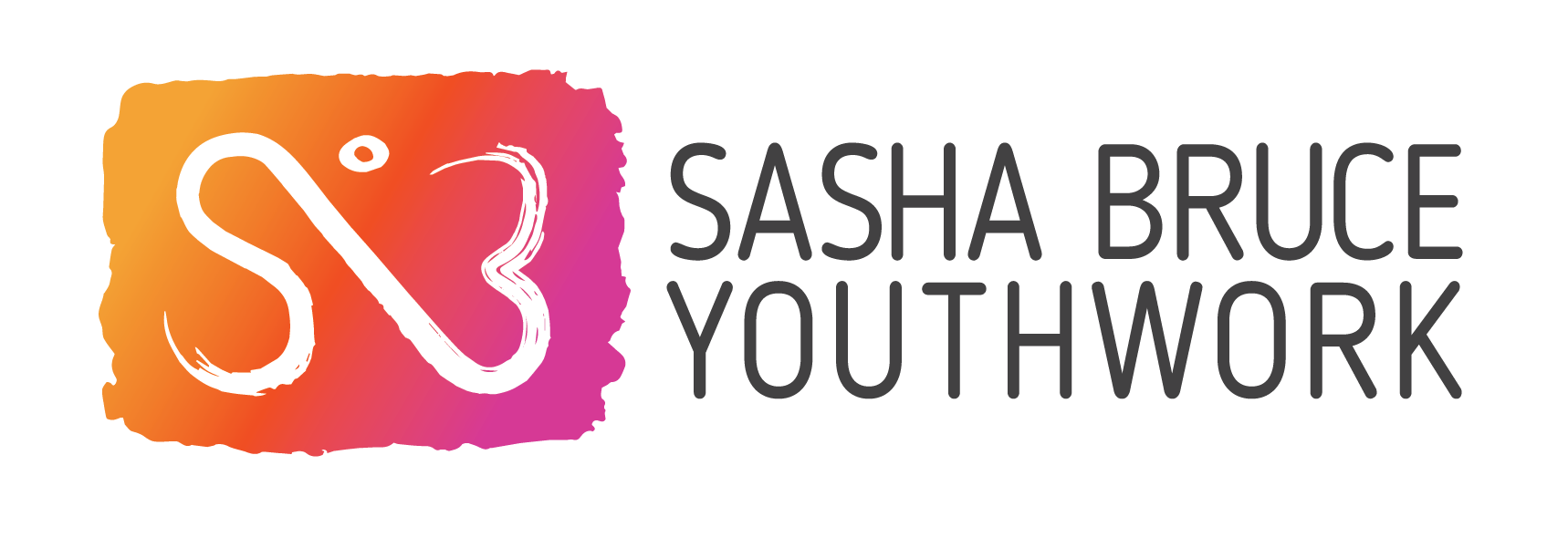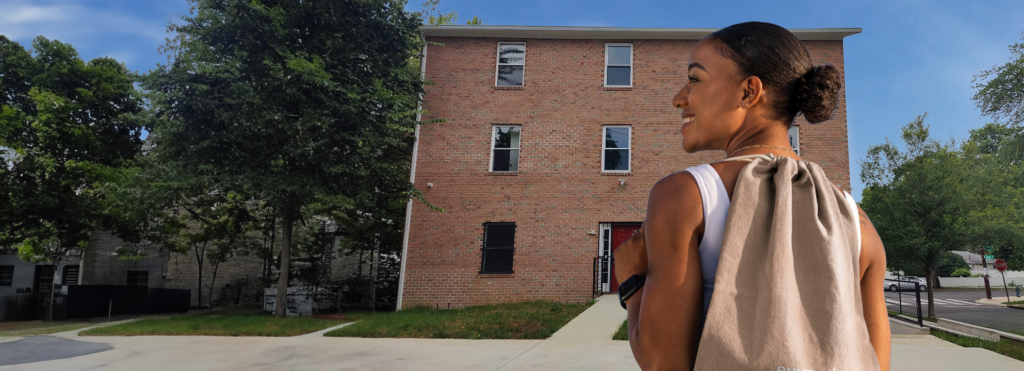Washington Commanders defensive tackle Jonathan Allen was 8 or 9 years old when
he and his older brother Richard were removed from their mother’s custody and taken
into foster care. Moving from shelter to shelter, foster home to foster home for ten
months until their father won his battle to gain custody of them, Allen considers this one
of the darkest times of his life.
His experience in foster care and the pain of that time prompted him to reach out to
Sasha Bruce when he became a player with the Washington Commanders. “When we
were looking to give back to the community, my wife (Hannah) and I wanted to pick
something that hits home, close to the heart,” stated Allen. Sasha Bruce was the right
fit. “This means a lot to my wife and me.”
The Allens have supported Sasha Bruce in numerous ways: helping Sasha Bruce meet
the needs of youth during the pandemic, supporting the organization’s Adopt-A-Home
campaign, providing meals and essential winter gear, and creating the Jonathan &
Hannah Allen Innovation Lounge at the Bruce House, a space that offers youth access
to Microsoft Surface Pro laptops, dedicated learning and study spaces, and gaming and
entertainment systems.

Jonathan and Hannah Allen at the 2017 NFL Draft.
So when Sasha Bruce received word from the District’s Child and Family Services
Agency (CFSA) that the organization had been given a green light to open a new
therapeutic home for youth in foster care, the idea of naming it after both Jonathan and
Hannah Allen, in recognition of his experience and the couple’s support for Sasha Bruce
and the youth it serves, took root.
The Jonathan and Hannah Allen House opened its doors in January 2024. Allen House
provides a therapeutic group home for up to six youth ages 13-17 years old with
complex behavioral and mental health needs who are living in foster care. It offers a
family-style home atmosphere and includes fully furnished single-occupancy bedrooms,
living spaces, consultation/ therapy rooms, a recreation space, and study areas.
On-site services focus on addressing the challenges facing youth. Individual and group
therapy is provided by a dedicated licensed Clinician. Clinical services support goals
within each youth’s individual service plan and include grief, loss and separation
counseling; anger management techniques and training; substance abuse supports;
and trauma-informed counseling and therapy. Youth work with a dedicated Behavior
Modification Specialist who designs behavior plans collaboratively with them to help
identify triggers and how to respond to triggering situations more skillfully and with
more emotional regulation. The program’s Linkages to Care Coordinator ensures clients
are connected to all the outside resources they need – whether medical, mental health,
social, recreational, or other.
Allen House is the only program of its kind in the District. And despite Sasha Bruce’s
extensive experience operating residential homes, Allen House is different in several
ways from much of the programming the agency provides. First, the youth in residence
at Allen House have not been able to succeed in traditional foster care placements. The
youth in the program experience serious mental health issues that require intensive
supports and services, so the program offers a higher ratio of staff to youth to ensure
the safety of both. Youth who have experienced multiple traumas, are often unable to
self-regulate their emotions and can react quickly and negatively to situations that cause
them stress. These factors place Allen House youth among the most vulnerable of
those we serve.
Second, staff have gone through extensive training and supervision to ensure that they
can meet the needs of youth in Allen House. Hired months prior to the residential home
opening date, staff received training from community partners and specialists in
Therapeutic Crisis Intervention (TCI), an evidence-based practice developed at Cornell
University. TCI supports residential care providers in responding to aggressive
behaviors in ways that empower children, recognizing that aggression may be the result
of trauma.
TCI helps staff to create a trauma-sensitive environment where children and adults are
safe and feel safe, and gives staff strategies and tools to pro-actively prevent and/or de-
escalate potential crisis situations with children. It teaches staff how to manage a crisis
situation in a therapeutic manner and provides guidance for following up with youth to
process the crisis event to help improve their coping strategies.
Sasha Bruce engaged a TCI expert with thirty years of experience with the intervention.
The trainer not only provided staff training but also intensive consultation with
leadership to implement the TCI model with fidelity in the program. Sasha Bruce’s
trained TCI specialists ensure that they are prepared to meet the needs of this
vulnerable population, and using TCI and other interventions provides tools to
accomplish this. Our purpose is to create a safe home for youth and to offer youth
supportive relationships, healthy routines and positive activities. We want youth to gain
the skills they need to live independently. We want youth to heal from the trauma they
have experienced. Advanced training helps us do that.
Third, Allen House features amenities that aren’t found in their other residential homes,
such as a music lounge, a fitness center and a beauty bar. Each bedroom is named
after notable African Americans.
Since Allen House began receiving youth in early 2024, the program has served more
than a dozen youth. Designed for six residents at a time, the program has a “no eject,
no reject” policy that guarantees youth will neither be removed from the program nor
rejected from admission due to behavioral issues.
This “housing first” approach is universal across Sasha Bruce programs. After all, the
hardest-to-serve youth are the ones who need our services the most. When youth arrive
after having failed to succeed anywhere else, we can’t expect them to immediately
become model residents. We expect youth to struggle, and we work with youth to build
their skills to be able to manage their emotions and expectations in everyday life and
the program.
Sasha Bruce could not operate Allen House without the strong support of the District’s
Child and Family Services Agency. The District agency has provided support to youth
and staff throughout the project’s development and implementation. With their support
and the dedication of our trained, and skilled staff, we are changing the lives of the
District’s most vulnerable youth.
This blog post was written by Elizabeth Oldham.


Jonathan and Hannah Allen at SBY home.



